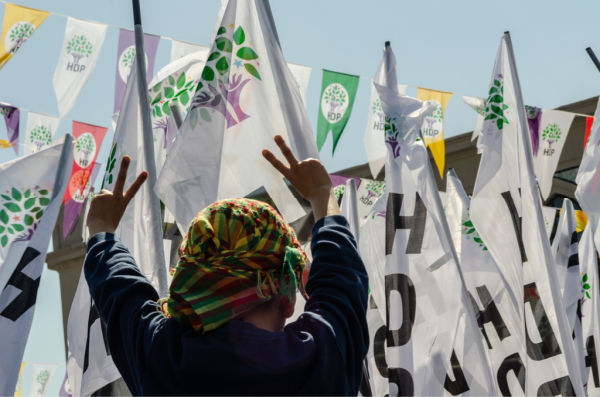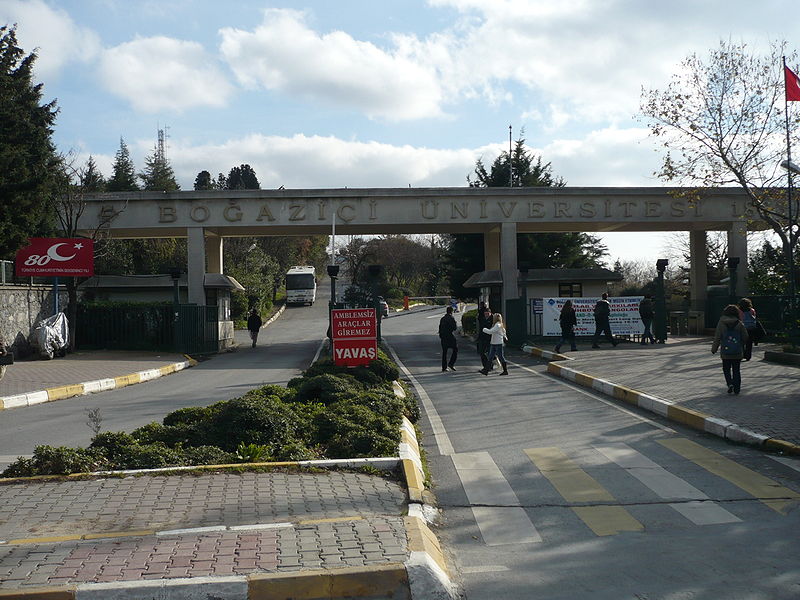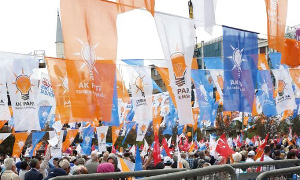Demirtaş, the HDP and the Kurdish political movement’s struggle for relevance
By Gareth Jenkins
October 27, 2022
Turkey’s Kurds have the potential to play a key role in Turkey’s forthcoming presidential and parliamentary elections, which are due to be held in June 2023 at the latest. Their votes could be critical to Recep Tayyip Erdoğan’s hopes of securing a third term as president and are likely to determine whether the alliance between his Justice and Development Party (AKP) and the Nationalist Action Party (MHP) retains its parliamentary majority. But, with most of its leaders in prison or facing prosecution, its members expelled from virtually all of the local authorities they won in the last local elections and its main political party, the Peoples’ Democratic Party (HDP), facing closure by the Constitutional Court, the Kurdish political movement faces a major challenge in persuading its supporters of the relevance of casting their votes. The 2023 elections could be decided not so much by who Kurds vote for but how many go to the polls.

The Boğaziçi Protests and the Politics of Fear
By Gareth Jenkins
February 11, 2021
The continuing protests at Istanbul’s Boğaziçi University are unlikely to lead to a repeat of the Gezi Park Protests, which swept Turkey in summer 2013, much less pose a serious threat to President Recep Tayyip Erdoğan’s grip on power. But his heavy-handed response has provided another example not only of the intolerance of dissent that has come to characterize his regime but of his increasing tendency to make mistakes and miscalculations – including his failure to understand that his repeated recourse to the politics of fear is insufficient to halt the long-term decline in his popular support.

Turkey Today: A Democracy without Opposition
By Burak Bilgehan Özpek
February 28, 2017
The AKP regime has from the very beginning of its rule successfully deployed the tactic of defaming and delegitimizing opposition. But the tactic has ultimately been successful because those who have successively been targeted by the AKP – seculars, liberals, the left, Kurds – have also held each other’s demands or opposition to be illegitimate. Turkey’s democracy is thus crippled not only because the opposition has been defamed and even criminalized all along since the beginning of the AKP regime. It is the divisions in society that make authoritarianism possible.

Is the Kemalist Project to Blame for Turkey’s Failed Democracy?
By Toni Alaranta
February 17, 2017
It has become a commonplace to argue that Kemalism was a Turkish variant of right-wing nationalism with strong corporatist leanings and even fascist aspects. This is often compounded with the assertion that the Kemalist secularist state elite only sought to secure its own power and status in society, and that it only paid lip-service to Enlightenment ideals. It is pertinent to ask why the Kemalists would have embarked on a hugely unpopular project of culture revolution that threatened their hold on power by provoking a popular reaction, if they only sought to establish a right-wing dictatorship. The right-wing authoritarianism from which Turkey has suffered during most of its history has other sources.

Can “Constitutional Engineering” Once Again Succeed in Pacifying Turkey?
By Halil Karaveli
February 3, 2017
Historically in Turkey, there is a relationship between the rise of emancipation movements and “constitutional engineering”, between class- or ethnic-based challenges to the established order and the imposition of authoritarian constitutional arrangements in response. The authoritarian constitution of 1982 was the answer to the challenge of workers and peasants in the 1960s and 1970s. Today, a presidential system is supposed to neutralize the Kurdish challenge. However, it may be that Turkey’s ethnic fissure may prevent it from developing either democracy or stable authoritarian rule.






